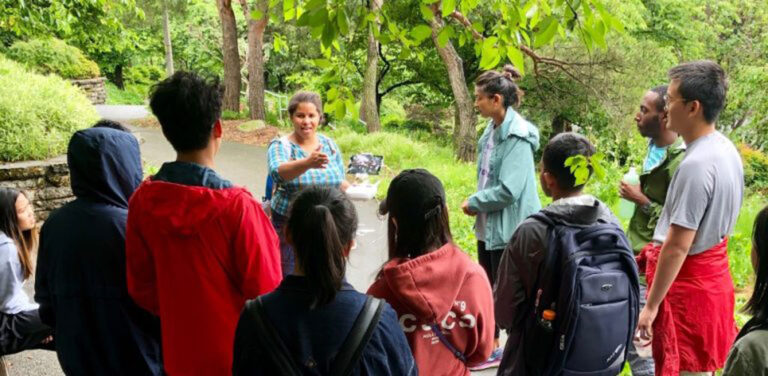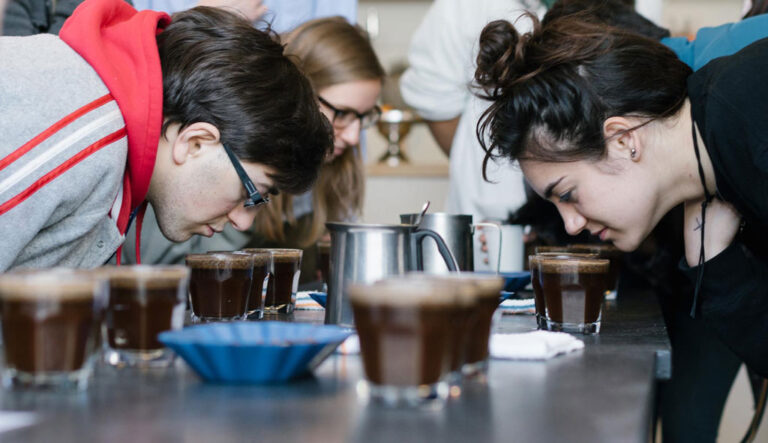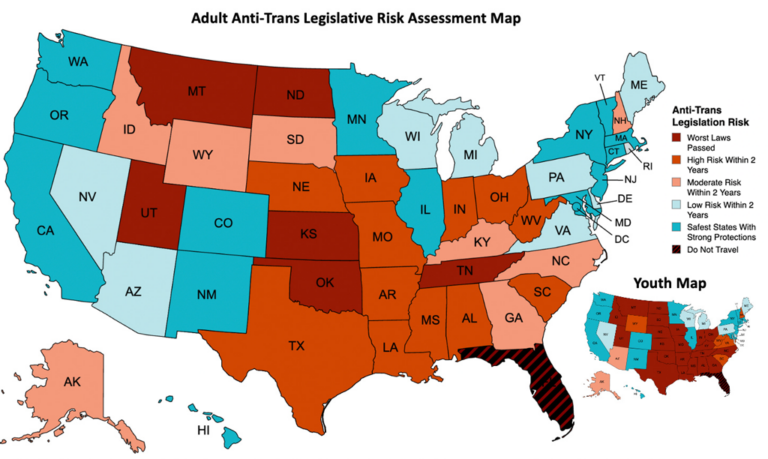Inwood, Christou Named Editors for GeoHumanities
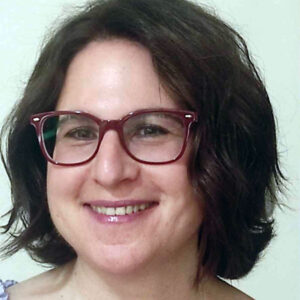 In January 2024, the AAG welcomes Anastasia Christou as the new GeoHumanities editor, joining Joshua Inwood, whose term as GeoHumanities editor began in January 2023. Inwood and Christou are replacing outgoing and founding GeoHumanities editors Deborah P. Dixon and Tim Cresswell.
In January 2024, the AAG welcomes Anastasia Christou as the new GeoHumanities editor, joining Joshua Inwood, whose term as GeoHumanities editor began in January 2023. Inwood and Christou are replacing outgoing and founding GeoHumanities editors Deborah P. Dixon and Tim Cresswell.
Christou is professor of Sociology and Social Justice at Middlesex University, London, UK. Her work is immersed in the critical geography, humanities, social sciences, and the arts, seeking to create “a public sociology which is relevant, meaningful and transformative,” she says. She has published widely on issues of migration and mobilities; citizenship and ethnicity; space and place; transnationalism and identity; culture and memory, gender and feminism; inequalities and austerity; postsocialism; home, belonging and exclusion; emotion and narrativity; youth and aging; sexualities; translocal geographies; affect, care and trauma; motherhood and mothering; women, men and masculinities; racisms and intersectionalities; gendered violence and social media; tourism mobilities; material culture; academic exclusion and solidarity; educational inequalities; embodiment. Christou is co-author with Eleonore Kofman of Gender & Migration (Springer, 2022), and co-author with Russell King of Counter-diaspora: The Greek Second Generation Returns ‘Home’ (Harvard University Press, 2015). She brings to her editorship significant experience editing book volumes and journal special issues, and serves on the international board of journals in the US and Europe. Her multi-sited, multi-method, and comparative ethnographic research in more than a dozen countries includes Narratives of the Greek Civil War: Memory and Political Identities as Public History; and the poem “Ruination,” anthologized in The Other Side of Hope.
“In assuming editorship of GeoHumanities, I am inspired by a commitment to ensuring critical and interdisciplinary advances in knowledge production,” says Christou. “I would also like to attract and encourage more global scholarship in the journal.”
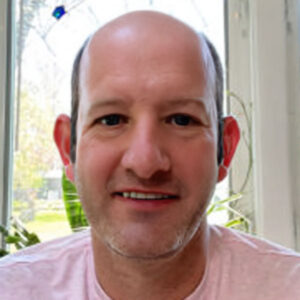 Inwood is a professor in the Department of Geography and The Rock Ethics Institute at the Pennsylvania State University. His research and teaching are focused on the social, political, and economic structures that perpetuate exploitation and injustice with a specific focus on the US South. His work explores racial capitalism and the broad trajectories of white supremacy. In addition, his work has engaged with the U.S. civil rights struggle and a broad understanding of the geography of the American Civil Rights struggle. His work has been funded by the National Science Foundation and his work has been recognized with several AAG honors including the Glenda Laws Award and the AAG’s media achievement award. He has authored or co-authored over fifty peer-reviewed journal articles and is co-editor of the volume Non-Killing Geographies: Violence, Space, and the Search for a More Humane Geography (Center for Global Non-Killing, 2011) and has a forthcoming co-edited book on Geographies of Justice (Bristol University Press 2024). He brings to his editorship at GeoHumanities an awareness of the intersection of geography, humanist value systems and human rights, politics, and history.
Inwood is a professor in the Department of Geography and The Rock Ethics Institute at the Pennsylvania State University. His research and teaching are focused on the social, political, and economic structures that perpetuate exploitation and injustice with a specific focus on the US South. His work explores racial capitalism and the broad trajectories of white supremacy. In addition, his work has engaged with the U.S. civil rights struggle and a broad understanding of the geography of the American Civil Rights struggle. His work has been funded by the National Science Foundation and his work has been recognized with several AAG honors including the Glenda Laws Award and the AAG’s media achievement award. He has authored or co-authored over fifty peer-reviewed journal articles and is co-editor of the volume Non-Killing Geographies: Violence, Space, and the Search for a More Humane Geography (Center for Global Non-Killing, 2011) and has a forthcoming co-edited book on Geographies of Justice (Bristol University Press 2024). He brings to his editorship at GeoHumanities an awareness of the intersection of geography, humanist value systems and human rights, politics, and history.
“At no point in the last 50 years have the humanities been more central to a series of unfolding political crises across the globe,” Inwood says, citing recent high-profile debates about public monuments, education about historic and contemporary acts of oppression, and the need to counteract anti-democratic forces that have mobilized in many nations. “I will strive to build on the last decade of significant scholarship in the journal and engage in this contemporary moment.”
The AAG would like to express its appreciation for the work of cultural geographer Tim Cresswell and feminist political geographer Deborah P. Dixon to establish GeoHumanities and develop its articles and readership since 2015.
 Cresswell is Ogilvie Professor of Human Geography in the School of GeoSciences at the University of Edinburgh. His research focuses on geographies of place and mobility and their role in the constitution of social and cultural life. He is the author or editor of a dozen books and over 100 articles on the role of space, place, and mobility in social and cultural life. Cresswell is also a widely published poet with three collections – most recently Plastiglomerate (Penned in the Margins, 2020). His most recent academic book, Muybridge and Mobility (co-authored with John Ott) was published by the University of California Press in 2022.
Cresswell is Ogilvie Professor of Human Geography in the School of GeoSciences at the University of Edinburgh. His research focuses on geographies of place and mobility and their role in the constitution of social and cultural life. He is the author or editor of a dozen books and over 100 articles on the role of space, place, and mobility in social and cultural life. Cresswell is also a widely published poet with three collections – most recently Plastiglomerate (Penned in the Margins, 2020). His most recent academic book, Muybridge and Mobility (co-authored with John Ott) was published by the University of California Press in 2022.
 Deborah Dixon is Professor of Geography at the University of Glasgow. Dixon’s internationally recognized work in feminist geopolitics was instrumental to the emergence of geohumanities as an inter-disciplinary field of research and practice. Her work cuts across scientific, artistic, and cultural categories to examine and imagine the ecological and social presence and futures of landscapes and places. Her collaborations include Sustainable Extractive Landscape Futures, working with earth scientists and artists on the conceptual and practical work of ‘fast geology’ in the Anthropocene, specifically in extractive landscapes. Dixon specializes in researching aesthetic, technological, political, and cultural responses to environmental problematics (including toxic landscapes, loss of biodiversity, and climate change) in Europe, the US, Australia and Asia. Her book Feminist Geopolitics: Material States (2016, Routledge) set the tone for investigations of feminist geopolitics and ecologies. A follow-up monograph will interrogate possible futures for the Earth created by viral and drone phenomena, geoengineering, and toxic exposures. She is also engaged in collaborative work that juxtaposes and recomposes citizen science, humanitarian technologies, and ethics in Malawi.
Deborah Dixon is Professor of Geography at the University of Glasgow. Dixon’s internationally recognized work in feminist geopolitics was instrumental to the emergence of geohumanities as an inter-disciplinary field of research and practice. Her work cuts across scientific, artistic, and cultural categories to examine and imagine the ecological and social presence and futures of landscapes and places. Her collaborations include Sustainable Extractive Landscape Futures, working with earth scientists and artists on the conceptual and practical work of ‘fast geology’ in the Anthropocene, specifically in extractive landscapes. Dixon specializes in researching aesthetic, technological, political, and cultural responses to environmental problematics (including toxic landscapes, loss of biodiversity, and climate change) in Europe, the US, Australia and Asia. Her book Feminist Geopolitics: Material States (2016, Routledge) set the tone for investigations of feminist geopolitics and ecologies. A follow-up monograph will interrogate possible futures for the Earth created by viral and drone phenomena, geoengineering, and toxic exposures. She is also engaged in collaborative work that juxtaposes and recomposes citizen science, humanitarian technologies, and ethics in Malawi.
GeoHumanities has published 18 issues since its beginnings in 2015. As Dixon recalls, the journal was “broadly conceived … as a venue wherein the diverse and proliferating engagements between the geographical sciences and the arts and humanities could be showcased.” GeoHumanities has highlighted research from “environmental humanities; the body and well-being; place and performativity; big data and neogeographies; history and memory; creativity, experimentation, and innovation; media and film studies; religion, belief, and the cosmos; and landscape and architecture.” While most of these have been articles, GeoHumanities has welcomed experimentations with form, combined media, and creative collaborations. Dixon recalls that the journal’s ‘Practices and Curations’ section has been the most innovative area of the publication, featuring research based on creative practice, as well as work produced during inquiry.
From the beginning, GeoHumanities was conceived to have a team of two co-editors. The founding team of Dixon and Cresswell drew Dixon’s experience in combining art and science, in particular her work with geo- and environmental scientists; and Cresswell’s humanities experience in the history of geography and his work as a poet. The range of work this team wished to attract to GeoHumanities—from Anthropocene geographies to spatial histories— called on further expertise from associate editors Sarah De Leeuw, Harriet Hawkins, Chris Lukinbeal, and Matt Zook, as well as an interdisciplinary editorial board and attentive reviewers.
In their first editorial for GeoHumanities in 2015, Cresswell and Dixon noted that the birth of the journal was emblematic of the long history of interdisciplinary, humanist work in geography, “endeavors that saw cultural geography become both a mainstay of the discipline and an arena where dialogue with other disciplines was encouraged and facilitated.” Cresswell dedicated the journal to “grasp the opportunity provided by the array of creative writers, artists, performers, and musicians who engage with geographical ideas in their work…That, to me, would be a fine thing for a confident and outward-looking radically interdisciplinary discipline such as ours.”
AAG thanks Tim Cresswell and Deborah Dixon for their vision and leadership during the founding and subsequent eight years of editorship and commends Anastasia Christou and Joshua Inwood for their willingness to continue the tradition established by the founding editors.
Find out more about GeoHumanities and other AAG journals.
